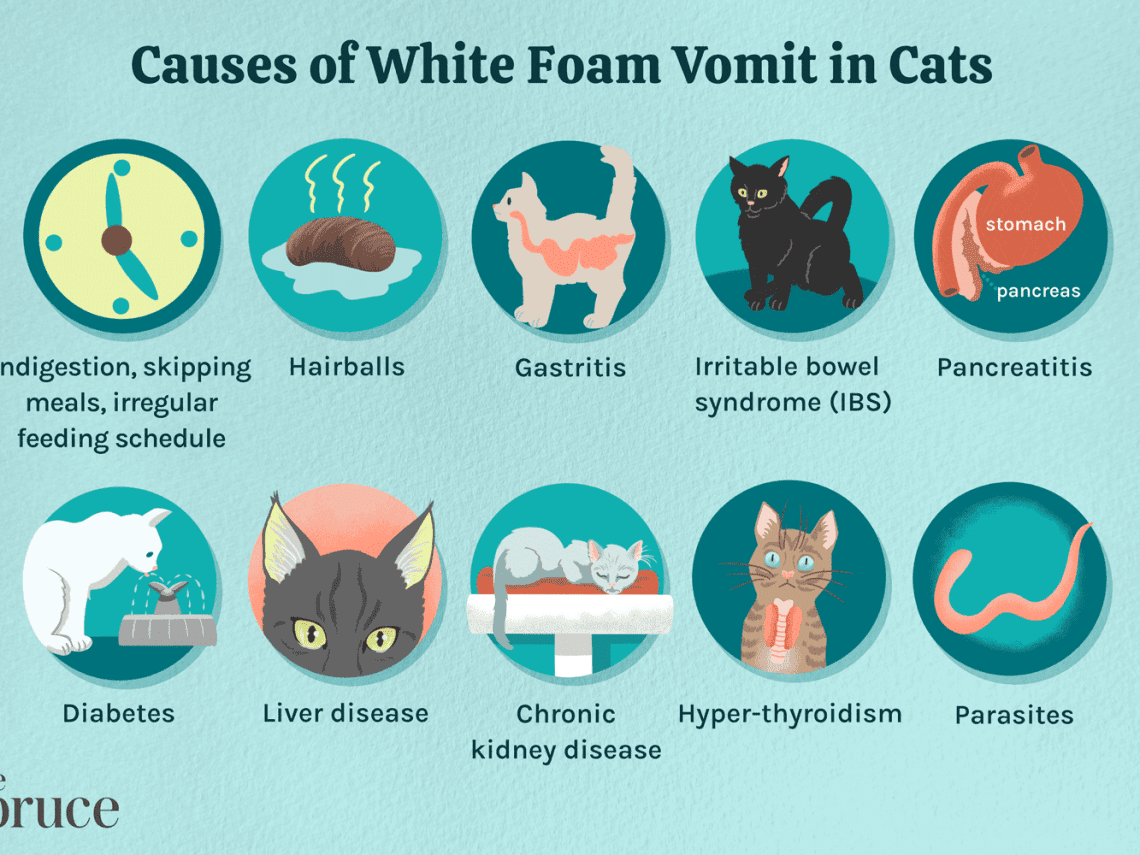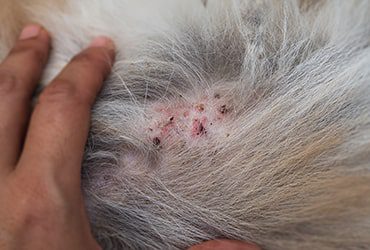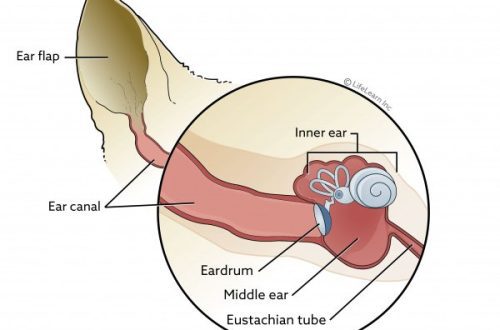
Cat vomiting. What to do?
Vomiting is a reflex process of eruption of the contents of the stomach and intestines through the esophagus and oral cavity, accompanied by intense contractions of the muscles of the stomach and abdominal wall. Vomiting can be observed from a sitting or standing position, just before the eruption of the contents of the stomach, the cat tilts its head forward.
Vomit usually contains food or feed in varying degrees of digestion, mucus, gastric juice, bile. Wool, helminths, foreign bodies, blood, pus may also be present in the vomit. When vomiting on an empty stomach, a small amount of white or yellowish foam may be released.
Do not confuse vomiting with nausea. Nausea is a condition preceding vomiting, accompanied by discomfort in the abdomen, general weakness, dizziness, but since the cat cannot tell about this, the owner should pay attention to other signs of nausea: salivation, frequent swallowing of saliva or “champing”, refusal to food and water, rapid breathing.
Contents
Diseases that are accompanied by vomiting:
It can be food stress (inappropriate food for cats, overeating, spoiled foods), intestinal obstruction, foreign bodies in the intestines, side effects of drugs, chemical poisoning; viral and bacterial infections that affect the lining of the stomach or intestines (feline panleukopenia); helminth infection, motion sickness – motion sickness, inflammatory bowel disease, neoplasms of the gastrointestinal tract, pancreatitis, liver disease, peritonitis, systemic diseases (chronic renal failure, diabetes mellitus, thyroid disease), inflammation of the uterus.
Acute and chronic vomiting
Distinguish between acute and chronic vomiting. Chronic is called periodic vomiting, which lasts more than 2 weeks, while the general condition of the animal can remain within the normal range for quite a long time. Chronic vomiting is common in systemic diseases such as chronic renal failure (CRF), diabetes mellitus, liver, thyroid and adrenal diseases, and various inflammatory diseases of the stomach and intestines. Very often, cat owners do not attach due importance to chronic vomiting and go to the clinic only in the later stages of the disease.
Cat vomited, what should I do?
First of all, evaluate the nature and volume of vomit, the presence of foreign objects, undissolved tablets, smell, the presence of undigested food, etc. This is not the most pleasant experience, but this information can be vital for your pet, especially if the cat has eaten tablets or bones.
Assess the general condition of the pet and the presence of other symptoms. If the general condition is poor, the cat is depressed or sleeps constantly, refuses to eat, hides; if you also observe any other symptoms – such as diarrhea, frequent urination or frequent attempts to urinate or defecate, increased thirst, fever, discharge from the nose and eyes, sneezing, etc., then this indicates that the cat is serious is ill and needs to be taken to the clinic as soon as possible. In this situation, vomiting may be one of the symptoms of a life-threatening disease/condition. And, the sooner the cause is found out and treatment is started, the better the prognosis. It is almost impossible to help cats and cats whose owners, with such symptoms, waited a week and did nothing.
If the general condition is unchanged, but vomiting is observed every three days or once a week, then it is worth planning a preventive examination in the clinic for a general examination in order to identify serious chronic diseases in the early stages, which is especially important for cats and cats older than 7 years. Timely diagnosis of kidney failure at an early stage can significantly prolong the life of a pet, while maintaining a good quality of life for it.
That is why all cats and dogs are recommended annual preventive examinations.
If vomiting happened once, and the general condition of the cat is normal, then you can not go to the clinic and observe the further condition of the pet. If vomiting occurs more than 2-3 times a day and / or other symptoms of diseases are present, then it is necessary to contact a veterinary clinic as soon as possible.
The article is not a call to action!
For a more detailed study of the problem, we recommend contacting a specialist.
Ask the vet
November 8, 2017
Updated: 21 May 2022





